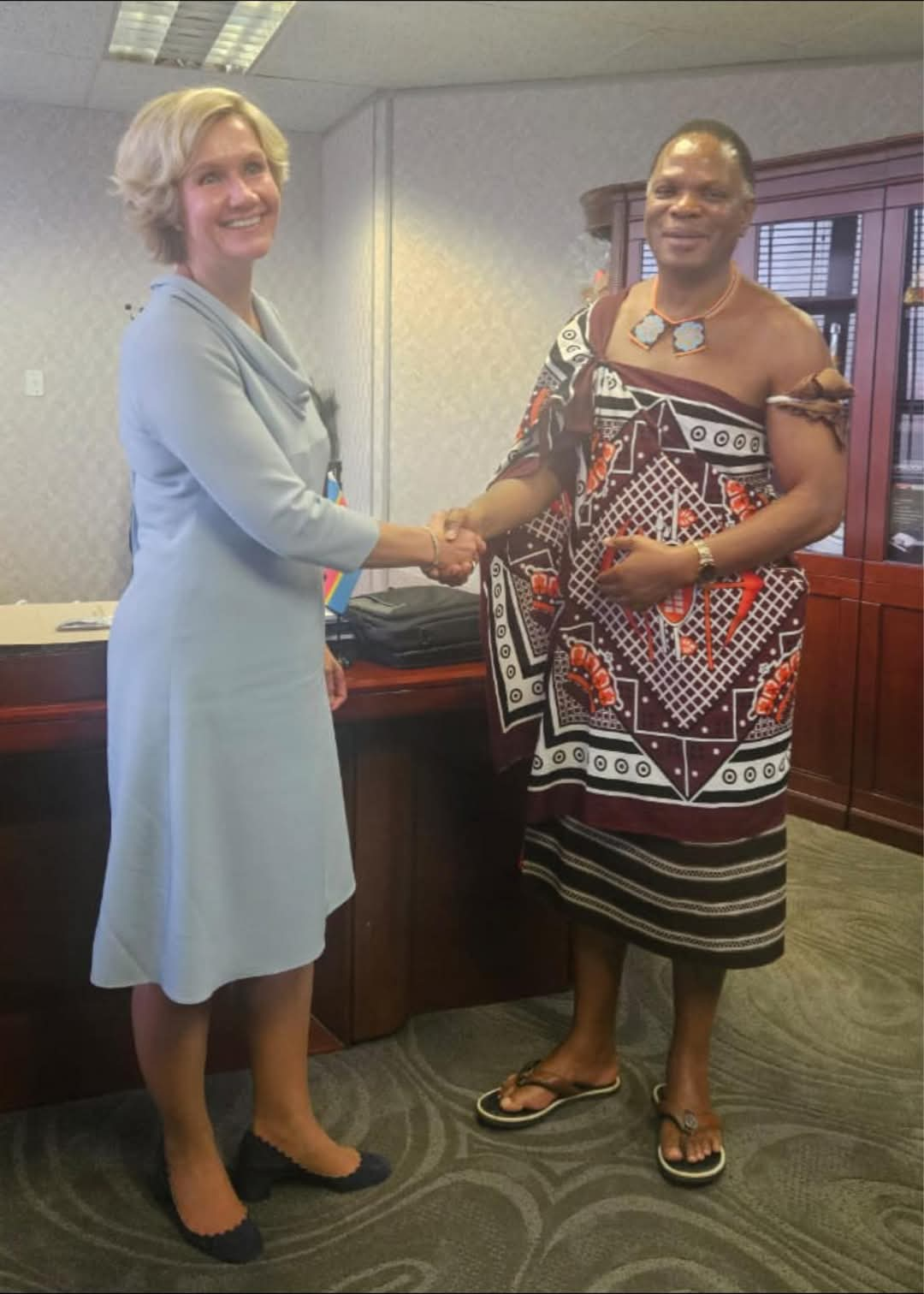By Delisa Thwala
In a pivotal move towards achieving universal energy access by 2030, the Kingdom of Eswatini has received renewed support from the World Bank through the ASCENT project.
This groundbreaking initiative is poised to transform the nation’s energy landscape, ensuring that even the most remote communities gain access to reliable electricity.
During a courtesy visit on Wednesday, the Honorable Minister for Natural Resources and Energy, HRH Prince Lonkhokhela, welcomed the World Bank delegation led by Satu Kahkonen, Country Director for Southern Africa.
The team included prominent figures such as Mirlan Aldayarov (Lead Energy Specialist), Ike Okorie (Country Representative), Marko Kwaramba (Senior Country Economist), and Joana Watkins (Senior Public Sector Specialist).
RELATED: Government, World Bank strengthen collaboration on energy, water, and land sectors
Their discussions centered on ongoing collaborations in the energy and water sectors, while also exploring future opportunities in land management.
“We are deeply grateful for the unwavering support from the World Bank,” stated HRH Prince Lonkhokhela.
“The ASCENT project is not just about extending electricity; it’s about empowering our people, fostering economic growth, and improving the quality of life across Eswatini.
Universal energy access is a critical pillar of our national development strategy, and with partners like the World Bank, we are confident in reaching our 2030 target,’’ he said.
The ASCENT project, recently approved for funding by the World Bank, aims to address the pressing challenge of energy access in Eswatini.
Currently, a significant portion of the population, especially in rural areas, lacks reliable electricity. This disparity hampers economic activities, limits educational opportunities, and affects healthcare delivery.
By bridging this gap, the ASCENT project seeks to catalyze socio-economic development across the Kingdom.
Satu Kahkonen underscored the World Bank’s commitment to Eswatini developmental goals.
“Access to energy is fundamental to development.
We are proud to partner with Eswatini in this transformative journey. Our support goes beyond funding; we are bringing in experts to ensure that the solutions are sustainable and tailored to the country’s unique needs,” she said.

Kahkonen also announced the World Bank’s readiness to dispatch a fact-finding mission focused on land management, reflecting the Bank’s holistic approach to development.
The importance of energy access cannot be overstated. Reliable electricity is essential for businesses to thrive, for students to study after dark, and for healthcare facilities to operate critical equipment.
Worth mentioning is that, in rural areas, where traditional energy sources often involve burning biomass, access to modern energy solutions will also contribute to improved health outcomes and environmental sustainability.
Prince Lonkhokhela highlighted the government’s commitment to inclusivity.
“Our vision is that no Liswati is left behind. Energy is a basic need, and it is our responsibility to ensure that every household, no matter how remote, can benefit from this essential service. T
he ASCENT project represents hope for many communities that have long been in the dark,” he emphasized.
The Ministry of Natural Resources and Energy has already begun preliminary work to identify priority areas and streamline the implementation process.
Collaboration with local stakeholders, community leaders, and the private sector will be vital to ensure the project’s success.
RELATED: 87% of Financial Inclusion has been a result of all mobile money banking services.
Training programs are also being considered to build local capacity and ensure that the benefits of the project are long-lasting.
Economic experts, including Marko Kwaramba, noted that improved energy access could significantly boost Eswatini’s economic growth.
“Electricity is the backbone of modern economies. By enhancing access, Eswatini is not only improving the daily lives of its citizens but also creating an environment conducive to investment and industrialization,” Kwaramba remarked.
Community members have expressed optimism about the project’s potential.
Nomcebo Dlamini, a resident of a rural community awaiting connection, shared her hopes: “Having electricity means my children can study at night, we can keep food fresh longer, and maybe even start small businesses. It will change our lives.”
As the ASCENT project moves from planning to execution, the collaboration between the Kingdom of Eswatini and the World Bank stands as a testament to what can be achieved through partnership and shared vision.
The journey towards universal energy access is complex, but with determined leadership and international support, Eswatini is illuminating the path forward.
The ASCENT project also aims to improve energy affordability by implementing subsidized connection fees for low-income households.
According to the Ministry, households in targeted communities will receive up to 70% off the standard connection fee, making energy more accessible to vulnerable populations.
As the ASCENT project moves from planning to execution, the collaboration between the Kingdom of Eswatini and the World Bank stands as a testament to what can be achieved through partnership and shared vision.
The journey towards universal energy access is complex, but with determined leadership and international support, Eswatini is illuminating the path forward.


